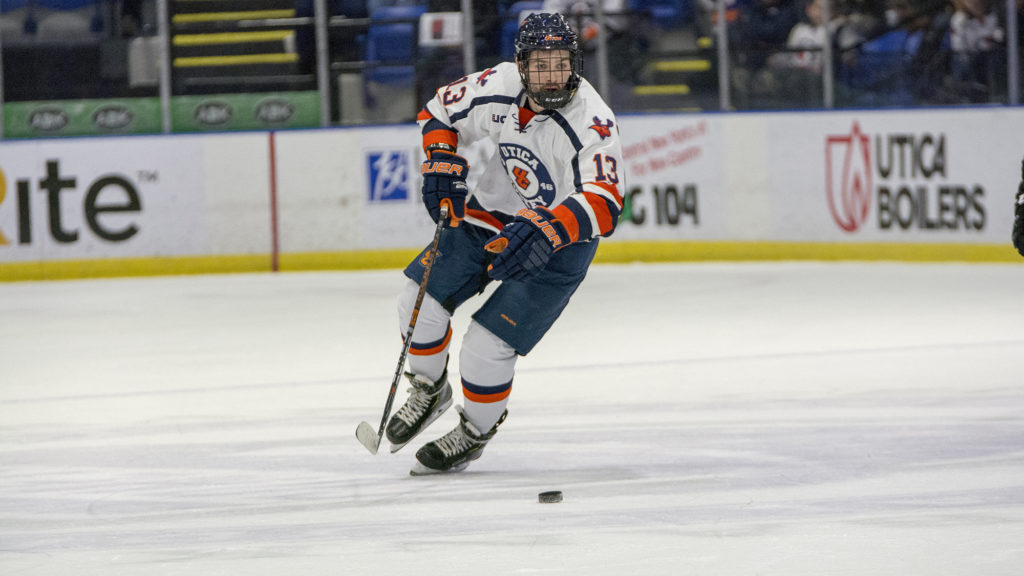
Between the end of the 2019-2020 season and the current 2020-2021 season, the COVID dynamic has created a variety of challenges for institutions, coaches, and players alike. While some teams and one conference in the D-III ranks in the east are playing real games, all are looking forward to a more normal hockey season in the fall of 2021 and the recruiting process, for many is focused on the seniors who have eligibility options according to NCAA actions during the pandemic. While travel and scouting has been dramatically impacted for coaches, some have started their recruiting pitch with proven entities already with the program and with a desire to play while continuing their education.
“Our seniors are our first recruiting priority,” said Utica head coach Gary Heenan. “Certainly there are some extenuating circumstances for our group in that we won the league two years ago but didn’t get an invite to the NCAA tournament and then last year repeated as UCHC champs only to have the NCAA tournament canceled due to the pandemic. We are playing now in an abbreviated season but know that there is no tournament again this year. Even if we won the league there is no NCAA tournament so our seniors are very motivated to have a chance to play at that national level. So yes, our most important recruits for next year are some very good players sitting in our locker room.”
While the opportunity to play another season and extend to masters level course work at an institution may be appealing to some players, there is a full gamut that senior players are working through on the academic, hockey and life after school emotion range.
“It has been tough for our kids,” noted Anna Maria head coach Dave McCauley. “We are playing, we aren’t playing; we have games on multiple weekends postponed; we have a positive test that quarantines us all away from the rink – it has been disheartening for everybody but especially the seniors who now have to balance life after college and finding a job during a pandemic. We had some seniors opt out early with all the uncertainty. The unfortunate truth is that even the most passionate of players knows they must move on at some point, and the pandemic has made it easy for some players to shift their focus to that next phase. I feel for them since this was not of their doing.”
Still others are mulling their options around an ongoing educational opportunity, a chance to play another season and job prospects after graduation. At Babson a group of five seniors is seeing all factor into their decision process.
“D-III hockey is really the last level of pay-to-play hockey,” said head coach Jamie Rice. “We don’t have scholarships so extending another year to play means another year of tuition. Yes, graduate school here is a great opportunity but most of our kids come here for the opportunity the school gives them for starting their careers in addition to playing hockey. I think we have a couple of players that may come back but have others that already have jobs lined up after graduation and are ready to move on to the next chapter in their lives beyond school and hockey.”
At the end of the day, the decision to come back or go is a personal one with financial implications for many who weigh the costs to play another season vs. the job market and real-world, post-pandemic that awaits them after graduation in the spring. That said, the conversations in the locker room will talk about options and choices and may lead to a number of graduate student players populating 2021-2022 rosters.


